Filter by
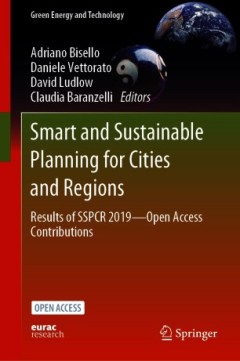
Smart and sustainable planning for cities and regions : results of SSPCR 2015
This open access book offers a selection of research papers and case studies presented at the 3rd international conference “Smart and Sustainable Planning for Cities and Regions”, held in December 2019 in Bolzano, Italy, and explores the concept of smart and sustainable planning, including top contributions from academics, policy makers, consultants and other professionals. Innovation pr…
- Edition
- -
- ISBN/ISSN
- 9783030577643
- Collation
- xvii, 307p. : ill.
- Series Title
- -
- Call Number
- 307.1216 SMA s
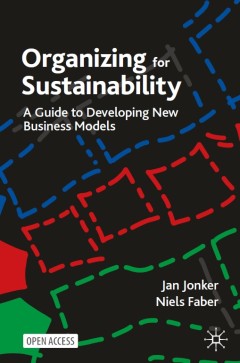
Organizing for sustainability : a guide to developing new business models
This upper-level Open Access textbook aims to educate students and professionals on how to develop business models that have a positive impact on people, society, and the social and ecological environment. It explores a different view of how to organize value creation, from a focus on an almost exclusively monetary value creation to one that creates positive impact through multiple values. T…
- Edition
- -
- ISBN/ISSN
- 9783030781576
- Collation
- xxxv, 242p. : ill.
- Series Title
- -
- Call Number
- 332.673 JON o
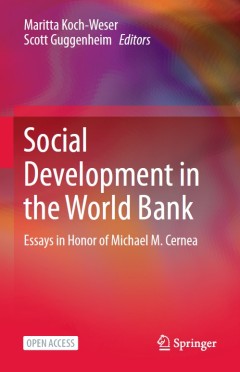
Social development in the World Bank : essays in honor of Michael M. Cernea
This open access book honors the work of Michael Cernea, who was the World Bank’s first professional sociologist, by taking on and extending his arguments for "putting people first.” Cernea led a community of social scientists in formulating and promoting a comprehensive set of innovative and original social policies on development issues, which the World Bank adopted and implemented. This …
- Edition
- -
- ISBN/ISSN
- 9783030574260
- Collation
- xxi, 368p. : ill.
- Series Title
- -
- Call Number
- 361.6 SOC s
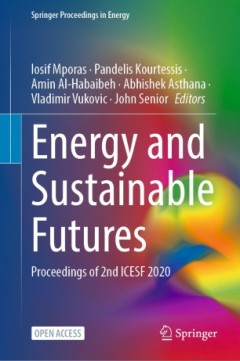
Energy and sustainable futures : proceedings of 2nd ICESF 2020
This open access book presents papers displayed in the 2nd International Conference on Energy and Sustainable Futures (ICESF 2020), co-organised by the University of Hertfordshire and the University Alliance DTA for Energy. The research included in this book covers a wide range of topics in the areas of energy and sustainability including: • ICT and control of energy; • conventional ene…
- Edition
- -
- ISBN/ISSN
- 9783030639167
- Collation
- xii, 282p. : ill.
- Series Title
- -
- Call Number
- 333.794 ENE e
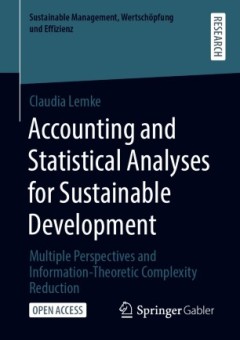
Accounting and statistical analyses for sustainable development : multiple pe…
In this Open Access publication Claudia Lemke develops a comprehensive Multi-Level Sustainable Development Index (MLSDI) that is applicable to micro, meso, and macro objects by conducting methodological and empirical research. Multi-level comparability is crucial because the Sustainable Development Goals (SDGs) at macro level can only be achieved if micro and meso objects contribute. The author…
- Edition
- -
- ISBN/ISSN
- 9783658332464
- Collation
- xxxi, 263p. : ill.
- Series Title
- -
- Call Number
- 338.927 LEM a
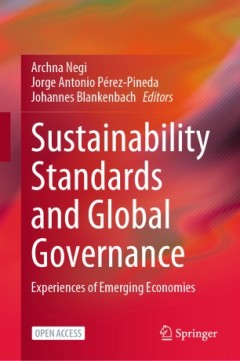
Sustainability standards and global governance : experiences of emerging econ…
This open access book focuses on the issue of sustainability standards from the perspective of both global governance frameworks and emerging economies. It stems from the recognition that the accelerated pace of economic globalization has generated production and consumption patterns that are generating sustainability concerns. Sustainability standards (and regulations) are increasingly being u…
- Edition
- -
- ISBN/ISSN
- 9789811534737
- Collation
- xxvii, 224p. : ill.
- Series Title
- -
- Call Number
- 338.927 SUS s
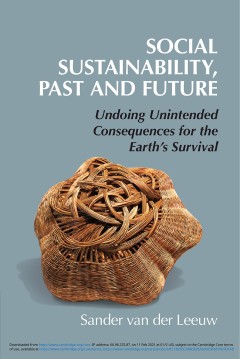
Social sustainability, past and future : undoing unintended consequences for …
In this book, Sander Van der Leeuw examines how the modern world has been caught in a socio-economic dynamic that has generated the conundrum of sustainability. Combining the methods of social science and complex systems science, he explores how western, developed nations have globalized their world view and how that view has led to the sustainability challenges we are now facing. Its central t…
- Edition
- -
- ISBN/ISSN
- 9781108595247
- Collation
- xvi, 516p. : ill.
- Series Title
- -
- Call Number
- 304.2 VAN s
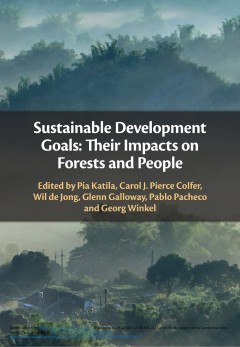
Sustainable development goals : their impacts on forests and people
Forests provide vital ecosystem services crucial to human well-being and sustainable development, and have an important role to play in achieving the seventeen Sustainable Development Goals (SDGs) of the United Nations 2030 Agenda. Little attention, however, has yet focused on how efforts to achieve the SDGs will impact forests and forest-related livelihoods, and how these impacts may, in turn,…
- Edition
- -
- ISBN/ISSN
- 9781108765015
- Collation
- xxxiv, 617p. : ill
- Series Title
- -
- Call Number
- 634.90286 SUS s
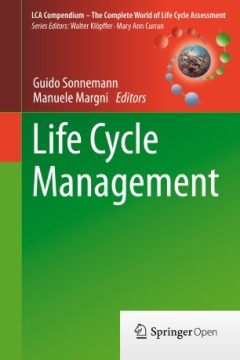
Life cycle management
This book provides insight into the Life Cycle Management (LCM) concept and the progress in its implementation. LCM is a management concept applied in industrial and service sectors to improve products and services, while enhancing the overall sustainability performance of business and its value chains. In this regard, LCM is an opportunity to differentiate through sustainability performance on…
- Edition
- -
- ISBN/ISSN
- 9789401772211
- Collation
- xvii, 353p. : ill.
- Series Title
- -
- Call Number
- 658.5 GUI l
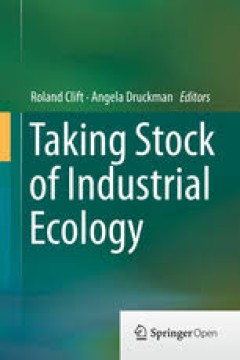
Taking stock of industrial ecology
How can we design more sustainable industrial and urban systems that reduce environmental impacts while supporting a high quality of life for everyone? What progress has been made towards reducing resource use and waste, and what are the prospects for more resilient, material-efficient economies? What are the environmental and social impacts of global supply chains and how can they be measured …
- Edition
- -
- ISBN/ISSN
- 9783319205717
- Collation
- xxi, 263p.
- Series Title
- -
- Call Number
- 338.9 CLI t
 Computer Science, Information & General Works
Computer Science, Information & General Works  Philosophy & Psychology
Philosophy & Psychology  Religion
Religion  Social Sciences
Social Sciences  Language
Language  Pure Science
Pure Science  Applied Sciences
Applied Sciences  Art & Recreation
Art & Recreation  Literature
Literature  History & Geography
History & Geography